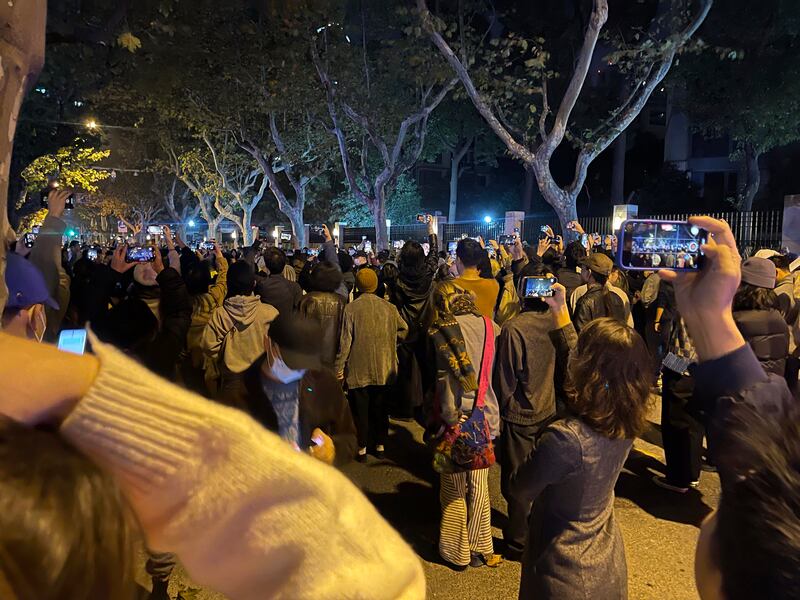Overnight protests against Covid-19 lockdowns continued in China on Sunday, with a rare demonstration in Shanghai and street protests in the north-western city of Lanzhou.
Residents gathered on Saturday night on Shanghai’s Wulumuqi Road for a candlelight vigil that turned into a protest in the early hours of Sunday, Reuters reported.
In recent months, some people have taken to social media to vent their frustration about lockdowns in China, a policy known as zero Covid, saying they pose more of a danger to life than the now waning virus.
China this month eased its Covid restrictions for people entering the country, reducing quarantine for visitors from 10 days to eight, three days of which can now be spent isolating at home, as opposed to in a government facility, which was the case under the previous rules.
Gita Gopinath, the first deputy managing director at the IMF, last month suggested China should "recalibrate" its zero-Covid policy. Her remarks followed President Xi Jinping's promise to press on with the policy, calling it the "people's war to stop the spread of the virus."
The new rules provided some comfort to foreign investors concerned about the continuing effects of zero Covid, but lockdowns covering entire districts and mass testing remain central pillars of government policy to control the virus.
China is the last country in Asia to follow the “zero-Covid” approach to containing the virus, a policy credited by the International Monetary Fund with initially helping the country "weather the storm" and recover quickly once vaccines were distributed. But the IMF last week said the strategy had likely contributed to a slowdown in growth.
On Thursday, a fire in a residential building killed 10 people in a tower block in Urumqi, capital of the Xinjiang region, leading to a wave of public anger due to the belief that residents were locked in at the time due to Covid restrictions. Authorities denied that this was the case.
Last week, a lockdown was extended by authorities in Guangzhou, a city of 19 million, closing down the district of Baiyun. Beijing has also been under lockdown recently, closing down its Chaoyang district.
China reported its fourth straight daily record of 39,791 new Covid-19 infections on Saturday, of which 3,709 were symptomatic and 36,082 asymptomatic, the National Health Commission said on Sunday.
That is compared with 35,183 new cases a day earlier — 3,474 symptomatic and 31,709 asymptomatic infections, which China counts separately.
There was one new death, compared to none a day earlier, raising the official death toll to 5,233.






